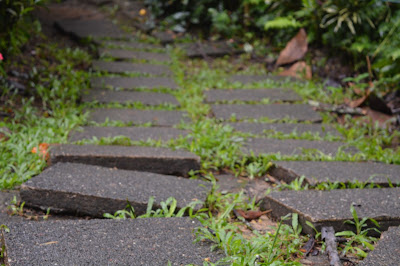I wrote my
last story in 2003; which earned me a slot in the Iligan national writers’
workshop, usually held in summer in the city of Iligan, where I spent about a
week with the most amazing mix of young poets and fiction writers from Luzon,
Visayas and Mindanao; and some unforgettable awestruck moments before the great
names in Philippine Literature, who sat as our panel of critics.
Until then,
I realized that no matter how often and how many people abused the term, not
everyone can actually be called writers in the real sense of the word until you
go through a “rite of passage,” that is called the “writers’ workshop,” and come
up with something that you can call your body of works afterwards dealing with
serious stuffs.
Yes, serious stuffs.
The
workshop, in itself, was an experience. Just think how it is to sit in wait for
judgment as critics (most of them belonging to the Philippine literary canon)
scrutinized what you’ve written to its tiniest bit of detail.
First, you
get the feeling that you are lucky enough to get admitted inside that chosen
circle, just for having written something good enough to be chosen over the rest
of the manuscripts that did not make it to that workshop.
But just as
you thought you’ve got the taste of heaven, you finally found yourself in a
series of sessions where each manuscript gets scrutinized for every detail,
motive, innuendos, nuance, by all critics and fellows present. Our usual
preoccupation, every break of the session and in the evening before we sleep, was
to go over the roster of stories and poems to be read next, trying to figure
out the author’s name behind the pen name, and trying to guess more as you read
the story. The author’s identity used to
be withheld until after the manuscript was read in the session and everyone has
given her comments. His identity revealed, the author can finally say something
in return; but usually, it didn’t really sound good to defend ones work against
criticisms, so, we deemed it best to keep mum and think about everything in
silence.
Every moment
of the workshop actually felt like a stretch of the Green Mile, every one of us
heading towards the guillotine, a terrible execution chamber from which there
was no escape. “But even if they kill
every bit of my soul, they could never get to that part of myself where the
poems come from,” I remember what a young poet named Duke Bagaulaya said during
our darkest hour in another writers’ workshop, the UP national writers’
workshop in Davao; and that was how each of us found the real meaning of what
it was to be a “writing fellow.” I remember the elevator ride with the beloved
fellow alien named Ava Vivian Gonzales, when our manuscripts were about to be
read; the last ones to be scrutinized towards the end of the workshop. Ava and
I and the third fellow Janis had taken to calling ourselves “aliens” at this
time after our realization that we have been perennial outcasts in the world
and its celebrity culture whose shallowness we abhor. We realized we could no
longer belong anywhere except to ourselves.
Contemplating
our impending doom, I told Ava, I felt like I was about to deliver a baby for
the second time, and knowing the impending pain, I wanted to escape from my own
body and run. But Ava had put up a good fight during the scrutiny. I remembered
her calling the critics an offensive name I can’t recall.
Afterwards,
I felt an urgent need to tear the whole manuscript to pieces, except that it
was already accepted by a literary editor of a national magazine for publication,
which made me feel even worse.
Since then,
I thought I haven’t written anything.
But that’s
not true! I’ve written many things since then. News stories, long features, a
chapter of a book, journals, blogs, diaries, instruction manuals, foreword and
afterword, an introduction of a book, a preface of a book that came out last
year, introduction of another book I edited, a preface, love letters to my
mother, accusatory letters to God, emails, etc.,
But they did
not count because they were not the kind of things I wanted to write about. But
what are the things that I want to write about? I don’t know. I must have forgotten.
 Until one day, diligently thumbing through the stories in the Arts and Letters section, I was drawn to a particular story which had caught my eye. It was a book of the author who wrote about the old race track! I started reading and came upon the old church on the Old Panaderos Street.
Until one day, diligently thumbing through the stories in the Arts and Letters section, I was drawn to a particular story which had caught my eye. It was a book of the author who wrote about the old race track! I started reading and came upon the old church on the Old Panaderos Street.





































